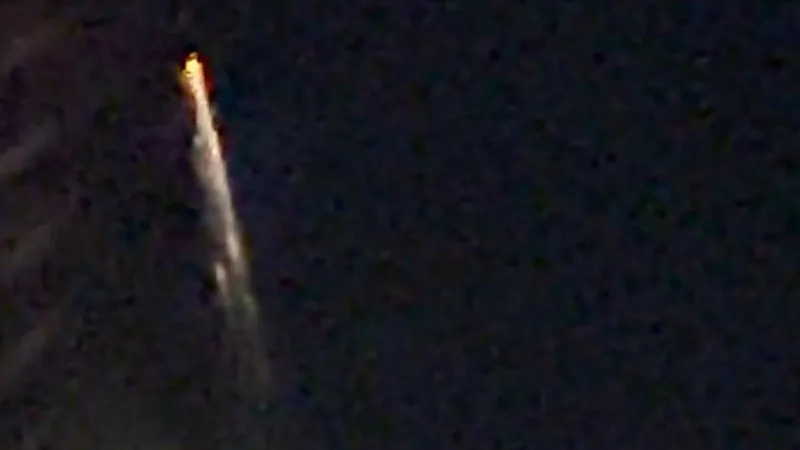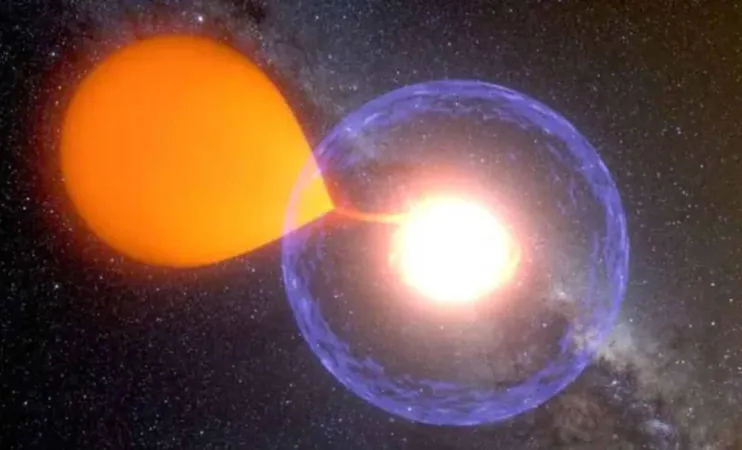
Dramatic Satellite Fall: Chinese Space Debris Lights Up the Night Sky Over U.S.
2024-12-22
Author: Jia
Dramatic Satellite Fall: Chinese Space Debris Lights Up the Night Sky Over U.S.
In a stunning event that captivated onlookers, a defunct Chinese satellite blazed across the evening sky on Saturday night, transforming into a fiery spectacle as it re-entered the Earth's atmosphere. The satellite, known as GaoJing 1-02 (Superview 1-02), was part of a group of four satellites launched into low Earth orbit in 2016. Eyewitnesses initially mistook the dazzling display for a meteor shower, but experts soon confirmed its true origin.
Renowned astronomer and satellite tracker Jonathan McDowell explained that the chaos began above New Orleans, as the satellite hurtled northward, likely disintegrating before it could safely land. The fiery descent led to fragments that might have landed in Mississippi, Missouri, Arkansas, or neighboring states, igniting curiosity and concern among residents.
NASA scientist Marc Fries, who specializes in tracking meteorite falls, revealed that at least four weather radars detected the debris as it soared over Jackson, Mississippi, and continued towards Arkansas and Missouri. The trajectory of such objects can create debris fields that stretch over vast distances, as they travel at speeds of several thousand miles per hour. The intense heat generated from friction with the denser atmosphere often causes smaller satellites to burn up before they reach the ground.
While McDowell acknowledged that GaoJing 1-02 is relatively small, he noted that there’s still a possibility that some of its remains could reach Earth unscathed. So far, no fragments have been reported or recovered, leading scientists to believe any debris that may have fallen is likely too small to identify as part of a satellite.
Significantly, the American Meteor Society confirmed receiving over 120 reports describing the brilliant fireball that lit up the sky, further highlighting the public's fascination with the incident. GaoJing 1-02 had been deactivated nearly two years prior, leading it on a gradual descent toward oblivion in the atmosphere.
Re-entries of satellites like GaoJing 1-02 are not rare occurrences in our modern world. However, it's important to note that damaging encounters with falling space debris are exceedingly uncommon, especially with smaller objects. In contrast, larger remnants, such as abandoned rocket parts, pose a marginally greater risk, yet incidents of them causing damage remain rare, as they typically plummet into uninhabited oceanic areas.
As space exploration continues to advance, we may see more incidents like this. In the wake of the GaoJing 1-02 event, the international community is reminded of the ever-present relationship between space technology and our planet, as both scientists and enthusiasts remain vigilant in tracking the sky above. Keep an eye out—who knows what celestial drama might unfold next!




 Brasil (PT)
Brasil (PT)
 Canada (EN)
Canada (EN)
 Chile (ES)
Chile (ES)
 España (ES)
España (ES)
 France (FR)
France (FR)
 Hong Kong (EN)
Hong Kong (EN)
 Italia (IT)
Italia (IT)
 日本 (JA)
日本 (JA)
 Magyarország (HU)
Magyarország (HU)
 Norge (NO)
Norge (NO)
 Polska (PL)
Polska (PL)
 Schweiz (DE)
Schweiz (DE)
 Singapore (EN)
Singapore (EN)
 Sverige (SV)
Sverige (SV)
 Suomi (FI)
Suomi (FI)
 Türkiye (TR)
Türkiye (TR)